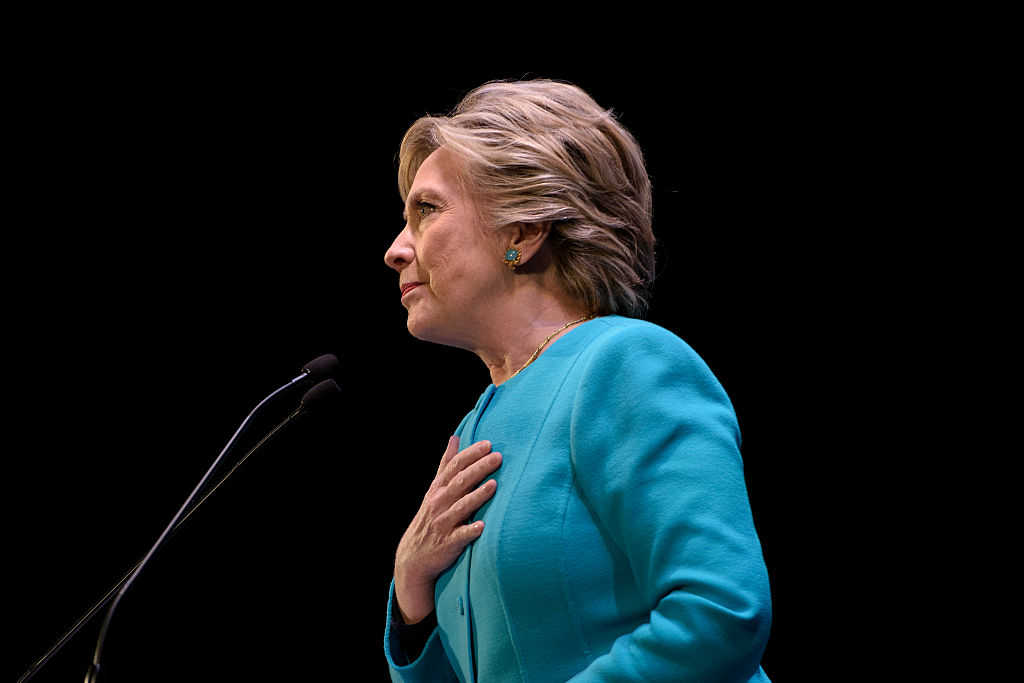A more than two-decade old interview The Washington Post conducted with now-Democratic presidential candidate Hillary Clinton is receiving newfound attention this week after the outlet decided to republish it.
The Q&A focused, in large part, on Clinton’s Methodist faith — a theological worldview she has ofttimes openly framed as a motivating force in her life. Clinton, who was first lady when the interview was conducted in 1993, said she sees deep ties between her religious beliefs and her “commitment to social action.”
“I don’t really see them as separate,” she told reporter Martha Sherrill. “I see them as part of the same set of feelings.”
Clinton went on to say that she’s tried to live an “integrated life,” bringing together “the spiritual, the emotional, the psychological, and physical,” but she emphasized how the spiritual portion of her life is an important component to defining who she is and what she cares about.
“It’s a real benchmark, I mean, when I disappoint myself because of the way that I have treated somebody, or behaved, it’s against a backdrop of believing that, you know, there’s some effort I should make to try to be better than that, and it’s something very personal with me,” she said.
Clinton also focused on her upbringing in the Methodist Church, explaining how the house of worship she grew up in was very supportive of kids, helping them find their way through the faith; she said this process wasn’t facilitated “in a dogmatic way” but was, instead, done “in a real open way in which anything could be discussed.”

Clinton also described how Don Jones, her former youth minister, shaped her perspective by showing her that a “social mission” could be merged and exercised through her faith — something she said she found quite “unifying.”
Another interesting part of the interview came when Clinton described her hope to see the world become a better place for every individual to live in, saying at the time that she didn’t “have any personal desire to be in any particular position.”
“I want to live in a place that helps everybody be better than they are and achieve whatever their potential is,” she said. “I don’t care who’s president. I don’t care who’s governor. I don’t care who’s the big muckety-muck that gets attention. I just want the conditions to change. And that’s always the way that I have felt.”
Clinton has since reiterated her faith at public events and on the campaign trail, saying at a January 2016 campaign stop that she believes the Bible commands people to love God and love others as Christians love themselves.
“That is what I think we are commanded by Christ to do, and there is so much more in the Bible about taking care of the poor, visiting the prisoners, taking in the stranger, creating opportunities for others to be lifted up, to find faith themselves that I think there are many different ways of exercising your faith,” she said.
In 2015, Clinton called the Bible “the living word,” and said she receives daily devotionals from a preacher she knows.
Clinton has caught flack over the years from some portions of the faith community, though, for her pro-choice abortion stance and for reversing her previous opposition to gay marriage — issues of concern for some conservative voters. PolitiFact examined Clinton’s views on this latter issue in 2015, finding that she had fully flip-flopped on her perspective:
Clinton came out in support of same-sex marriage in 2013 after more than a decade of opposing it. But her views are particularly in the spotlight now that she is a presidential candidate.
We decided to put Clinton’s statements about same-sex marriage on our Flip-O-Meter, which measures whether a candidate has changed their views without making a value judgment about such flips. We found that as public opinion shifted toward support for same-sex marriage, so did Clinton.
Among other quotes, PolitiFact noted that Clinton once said the following in 2000: “Marriage has got historic, religious and moral content that goes back to the beginning of time, and I think a marriage is as a marriage has always been, between a man and a woman.”
By 2013, though, she was fully embracing same-sex nuptials both personally and as a matter of policy, as she noted at the time. Of course, Clinton is hardly alone in changing her views on the matter, though her flip-flop has captured attention due to her second run for the presidency.
The re-emergence of the Washington Post’s 23-year-old interview with Clinton comes as faith and religion remain important indicators in the 2016 presidential race, especially as pollsters and campaigns, alike, ponder the role that theological perspectives will play in American voting patterns.
Both Clinton and Republican rival Donald Trump have struggled to varying degrees to court Christians and evangelicals, in particular, though recent polls show Trump faring better among some Christian cohorts.
According to the Barna Group, Trump has the support of the majority of support of evangelicals (55 percent), those who have a biblical worldview (57 percent) and people who believe in absolute moral truth (48 percent vs. Clinton’s 37 percent), whereas Clinton has the majority of atheists and agnostics (61 percent).
Clinton, though, performs better among Catholics (45 percent vs. 35 percent) and non-born again Christians (48 percent vs. 36 percent), as Deseret News reported.
(H/T: The Washington Post)



